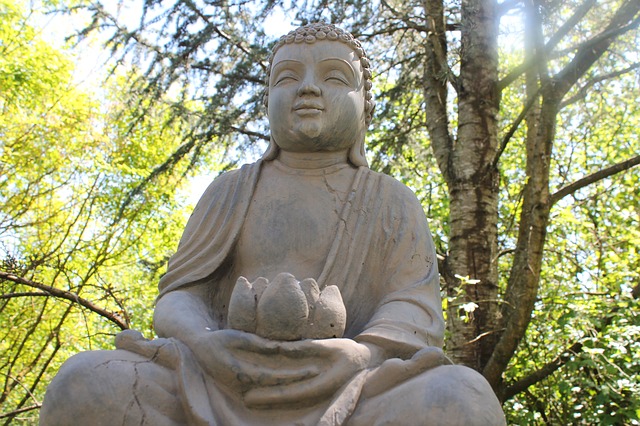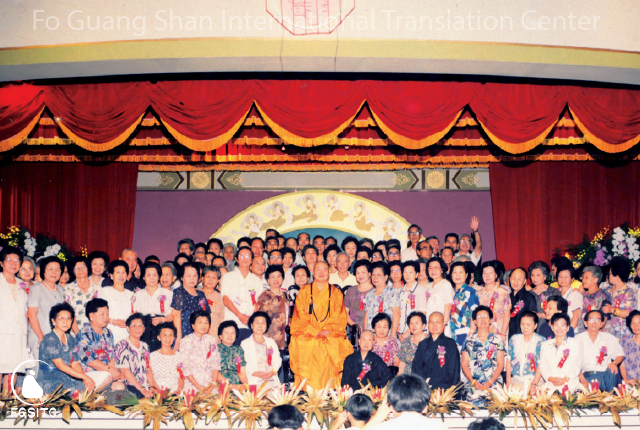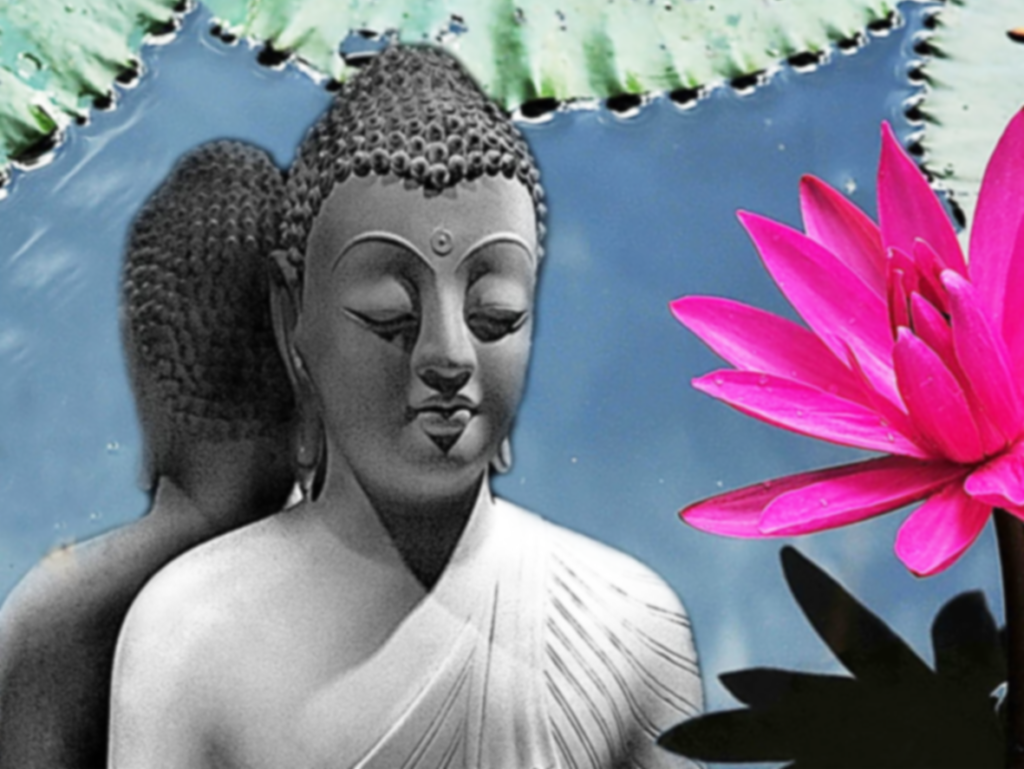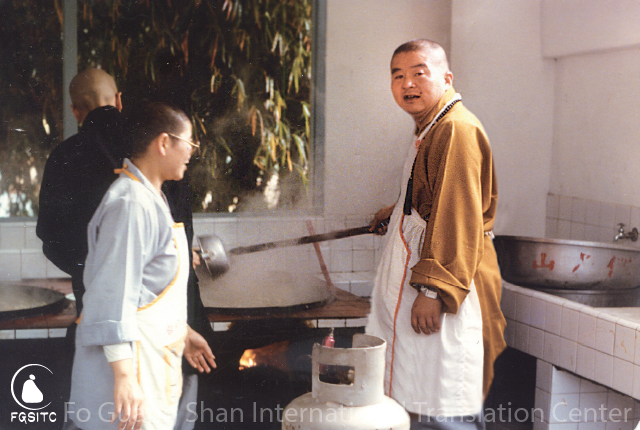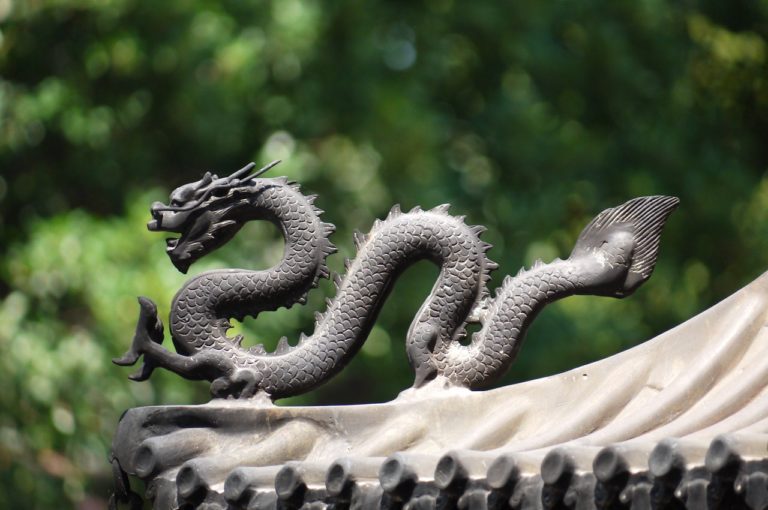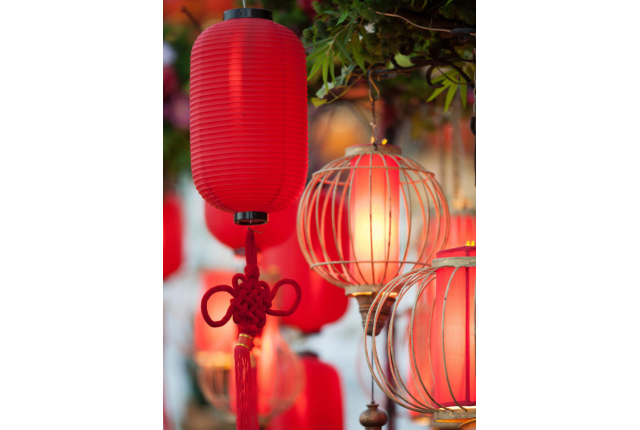
One year, during the summer retreat[1] at Lingshu Monastery, King Liu of the Later Han[2] of the Five Dynasties Period insisted on inviting Chan Master Yunmen and the entire community of the monastery to pass the summer in his palace.
At the palace, several monks received the court ladies paying their respects and inquiring about the Dharma. The women gathered together chattering pleasantly, so it was very noisy. Especially since King Liu was devout and valued the Dharma, not a day passed without the practice of Chan meditation and lectures. The elders of the monastery were also happy to give Dharma talks to the court ladies and eunuchs. However, only Chan Master Yunmen sat alone meditating silently to the side. As a result, the court ladies did not dare to get close and ask for instruction.
There was an official on duty at the palace who often saw this kind of situation, so he asked Chan Master Yunmen for instruction on the essentials of the Dharma. Chan Master Yunmen always remained silent. Not only was the palace official not offended, he was even more respectful. On the front of Biyu Hall, he posted a poem that said:
The cultivation of great wisdom begins with Chan,
In the Chan gate, it is better to be silent, not noisy.
All the clever ways of speaking, competing for the Truth,[3]
Still defeated by the “non-speaking” of the Chan gate.
Master Hsing Yun’s commentary:
The great masters of the Chan School have always been like leisurely clouds and wild cranes, sometimes dwelling in the mountain forests, sometimes living by the water. With three robes and one mat, they follow their conditions and let things follow their own course. Even when their Dharma conditions are remarkable or they are among royalty, they are not tempted by material gain or moved by power.
Just as in Chan Master Yunmen’s “a moment of silence, a clap of thunder,” even though no words are spoken, his instructions are like thunder rumbling over our heads. If we understand the countless insights in our hearts when we are in silence, then it can be said that we have penetrated a little bit of Chan.
Notes:
- The summer retreat is a practice that has been passed down as the “rainy season retreat” since Sakyamuni Buddha’s time in India. It refers to the period when Buddhist monks stopped their travels and outdoor activities for the duration of the summer rainy season and gathered at a sheltered location to devote themselves to study and discipline.
- The Later Han of the Five Dynasties Period lasted from 947-950 C.E. and was the fourth of the Five Dynasties. The Later Han was a tumultuous period marked by continuous wars and division in the country.
- “Truth” means the supramundane truth.
Source: Chan Heart, Chan Art, written by Venerable Master Hsing Yun.

